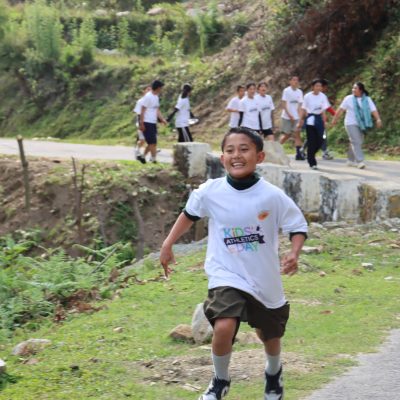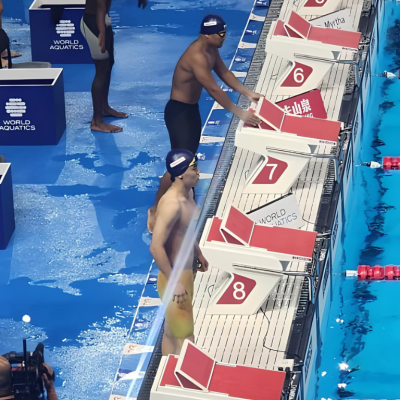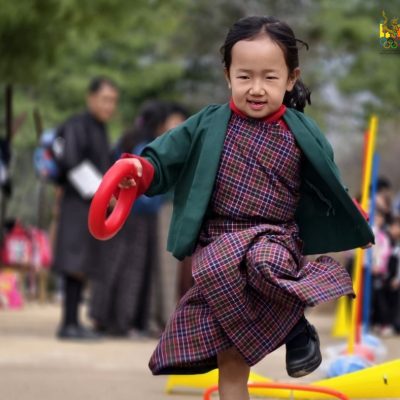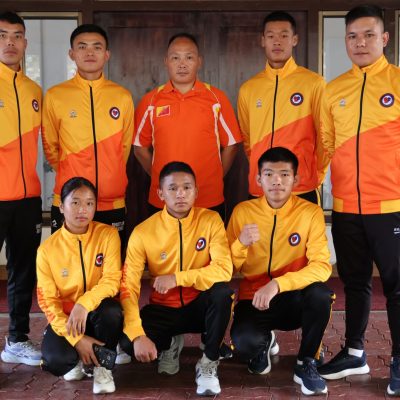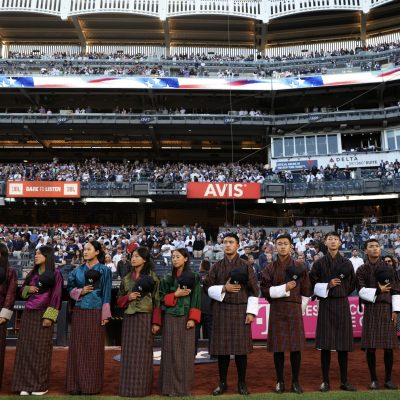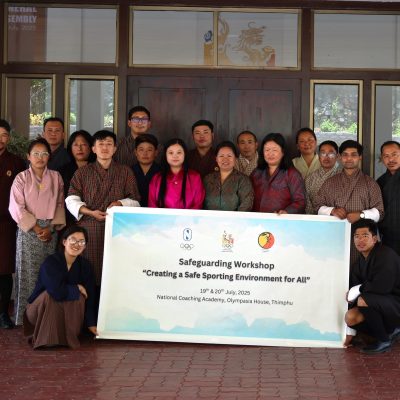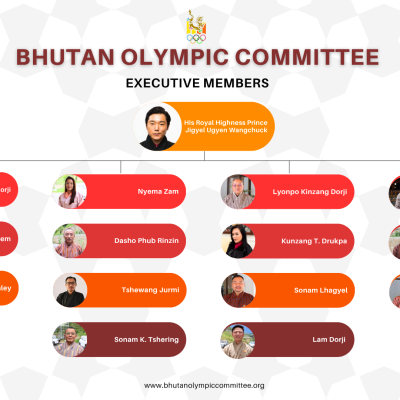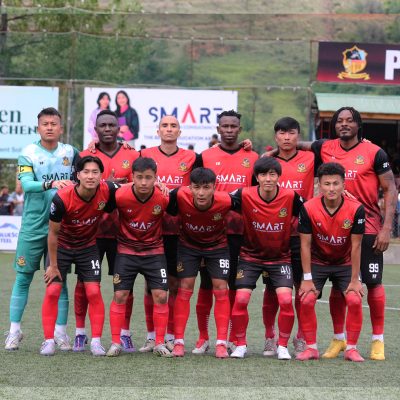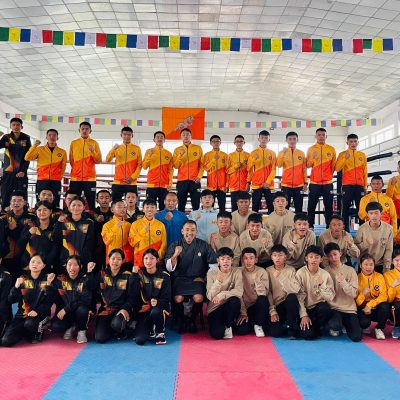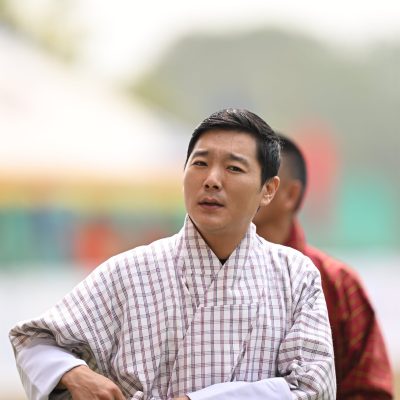A New Playbook for Bhutanese Schools
Teachers Reimagine Sports as Hubs of Innovation, Leadership, and Opportunity
In a sunlit conference room of BOC , ten educators from four pilot schools gathered not just for a training—but for a transformation. What unfolded during this one-day intensive under the Sports in School (SiS) project was nothing short of a paradigm shift in how sports are viewed in the education ecosystem of Bhutan. The day-long workshop, themed Sports Entrepreneurship and Event Management, challenged educators to look beyond scoreboards and rethink their role as catalysts of innovation within their schools.
Gone are the days when school sports were confined to medals and match scores. This workshop—centred on Sports Entrepreneurship and Event Management—unlocked a bold new narrative: that the playing field could become a launchpad for student leadership, creative enterprise, and even economic empowerment.
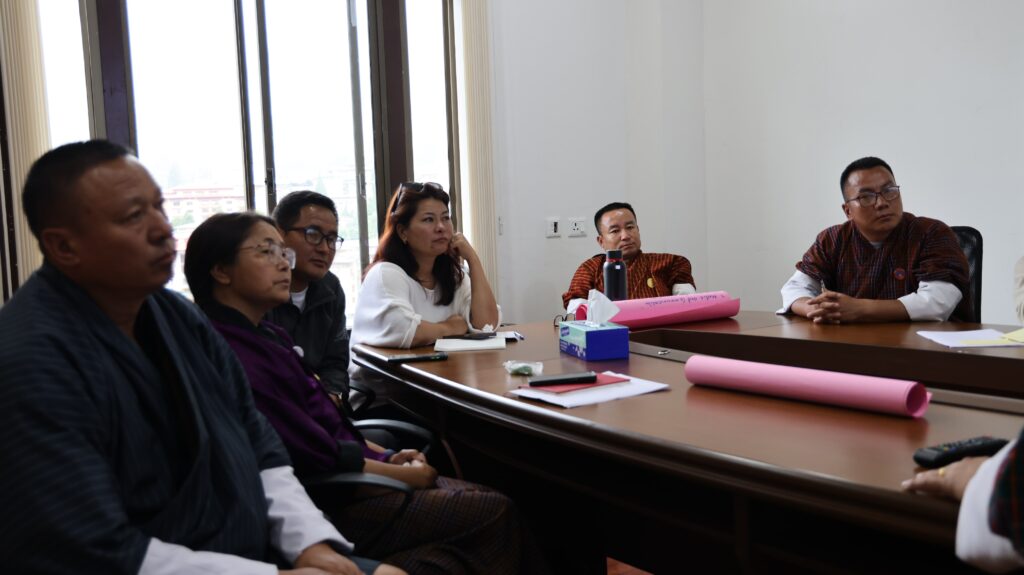
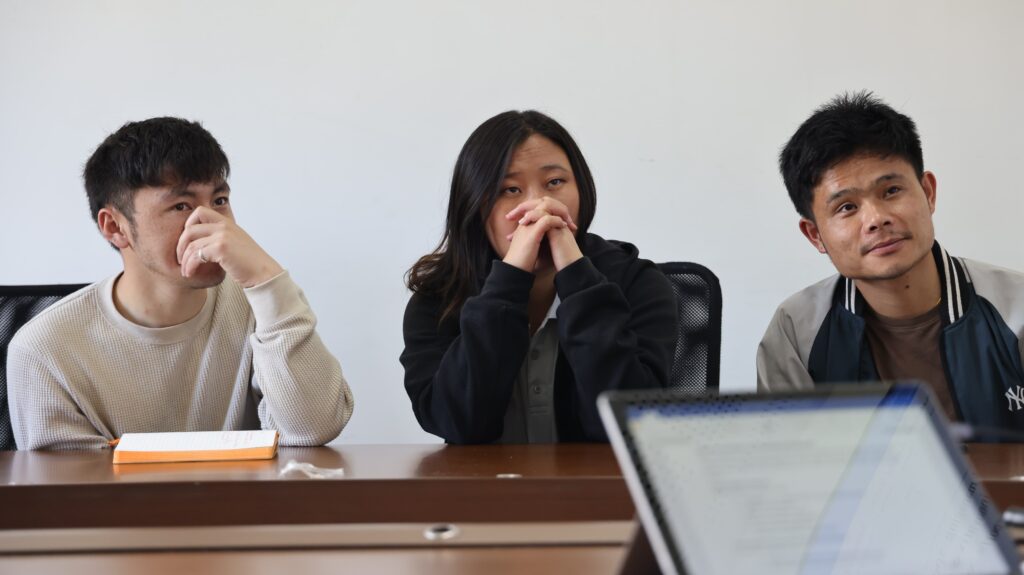
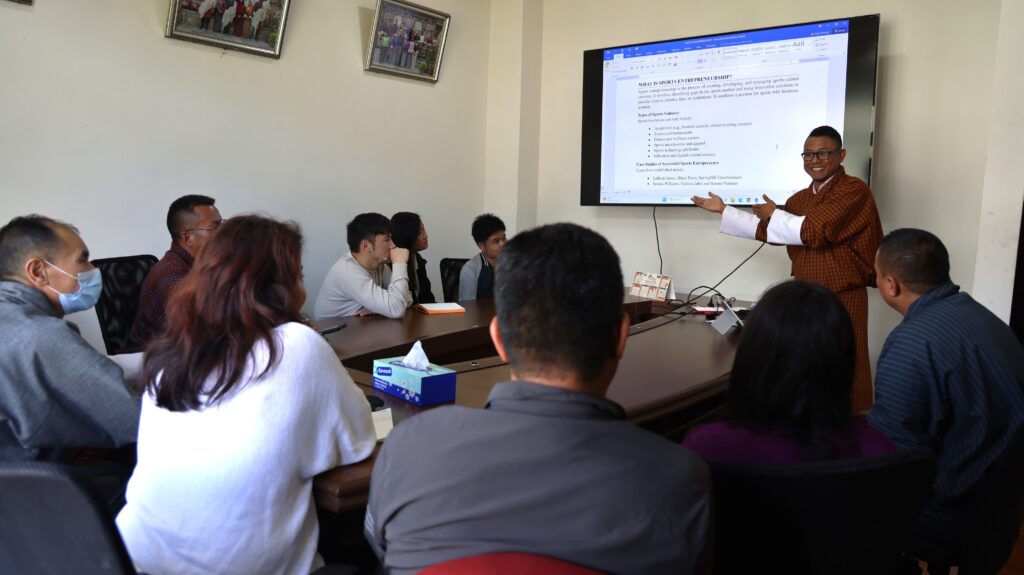
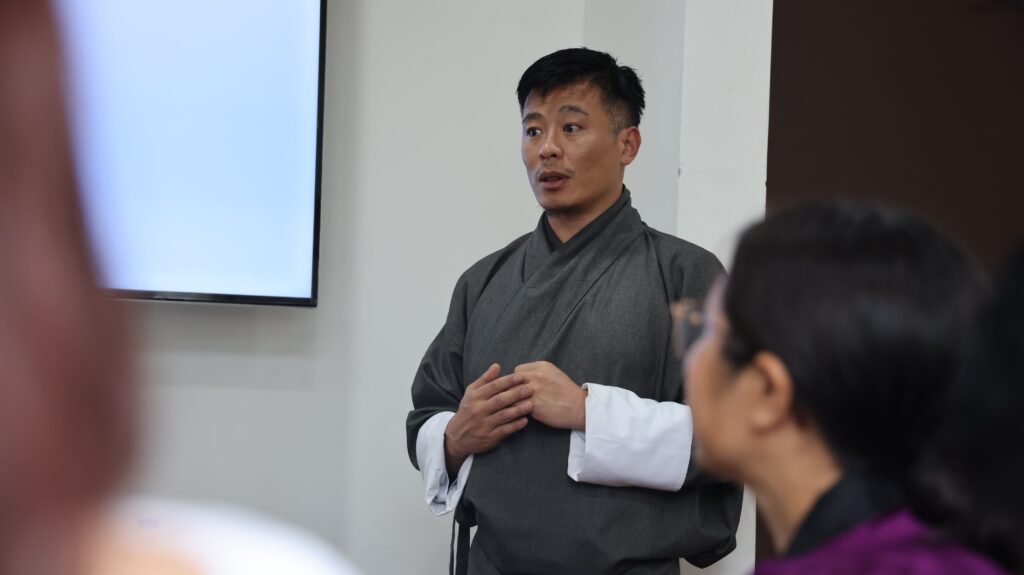
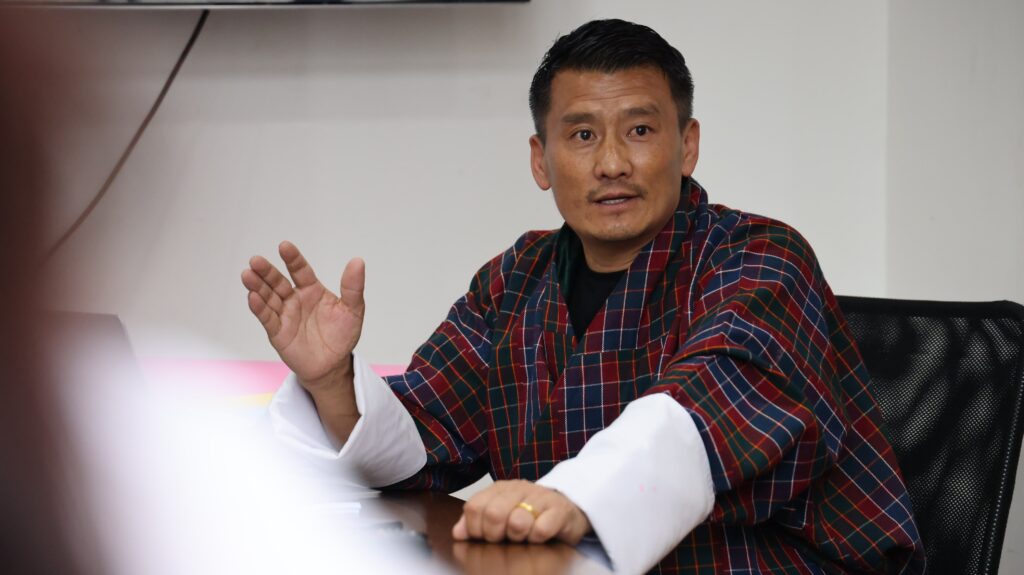
Leading this revolution in thought was Mr. Victor Gurung, Sports Media & Technical Lead and Consultant, who opened the first session with a powerful challenge: What if school clubs could sustain themselves—not through handouts, but through smart planning, creative ventures, and entrepreneurial thinking?
Rather than leaning on external support, teachers explored how to attract sponsors and investors by packaging value. They discussed how school sports festivals could become more than events—they could become platforms. Booths, stalls, ticketing, and merchandise weren’t afterthoughts—they were income streams. Teachers began to visualize how every element—from stage banners to snack stalls—could be intentionally designed for revenue generation and reinvestment.
In one particularly eye-opening moment, a simple juice cup became a lesson in innovation. Mr. Gurung held up an ordinary plastic cup used to sell fresh juice at school events. Plain. Empty. Untapped. He invited participants to rethink its surface—not as waste, but as prime real estate. “Why not place sponsor logos on the cup?” he demonstrated. “Why not sell this space as part of a branding deal?” Suddenly, the cup wasn’t just a container—it was a micro-billboard. One teacher remarked, “It’s like we’ve been sitting on gold without realizing it.”
Using frameworks like the Business Model Canvas (BMC) and real-time brainstorming, educators worked through how to price stalls during sports festivals, how to measure ROI, and how to channel profits back into clubs—for equipment, talent development, or community outreach. Discussions expanded into creating pitch decks for potential sponsors, using data and visuals to present student engagement as value for brands.
When Mr. Kesang Phuntsho Tshering, Senior Program Officer, took the floor, his calm and clear delivery immediately drew everyone in. He made event planning feel not just manageable, but meaningful. Rather than simply listing logistics, he brought events to life—walking teachers through each stage, from the first idea to the final thank-you. What often felt chaotic suddenly had structure. He showed the value of defining roles, keeping the audience engaged, and gathering feedback that helps each event get better over time.
What truly resonated with the teachers was the way he redefined a school sports day—not just as a series of games, but as an experience that could unite a community. Through simple, practical tips, he revealed how strong branding, creative touches, and thoughtful coordination could turn even the smallest event into something unforgettable. Teachers left inspired, full of ideas: themed stalls, parent involvement, interactive zones for younger students. The biggest takeaway? It’s not just about what happens on the field—it’s about how it makes people feel. With the right planning, school events could become something bigger: a source of pride, a tool for learning, and a moment that lingers long after the final whistle.
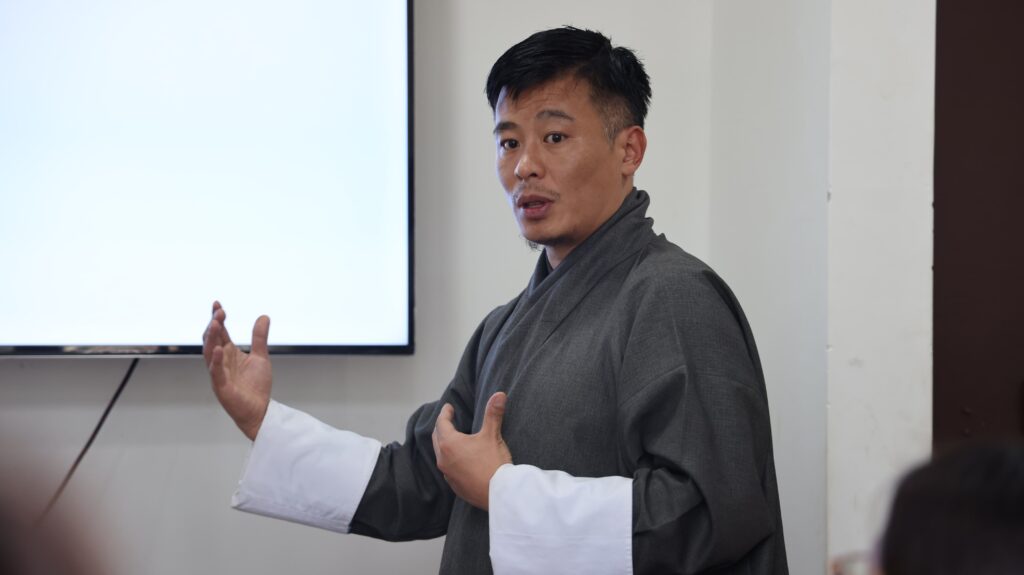
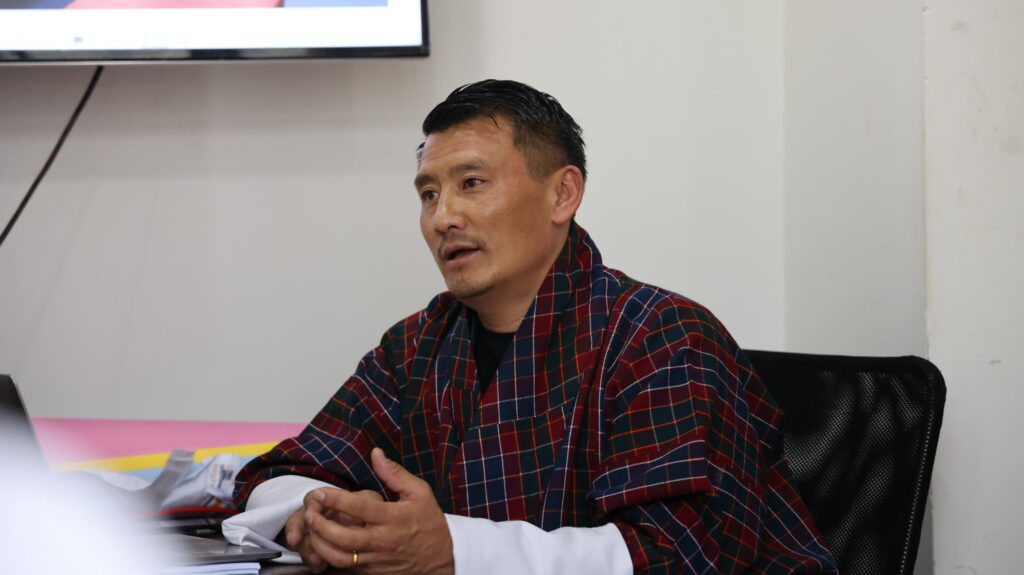
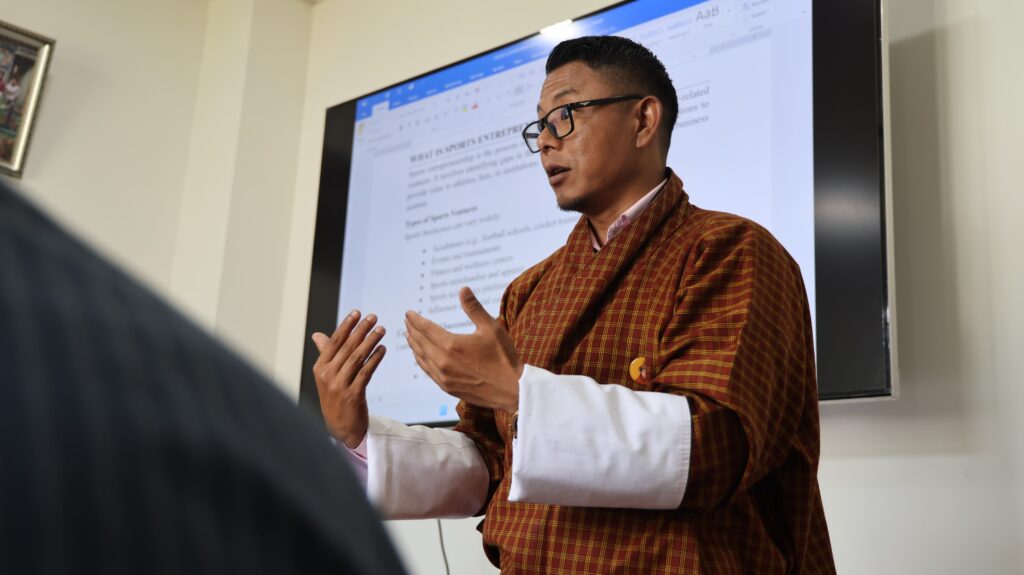
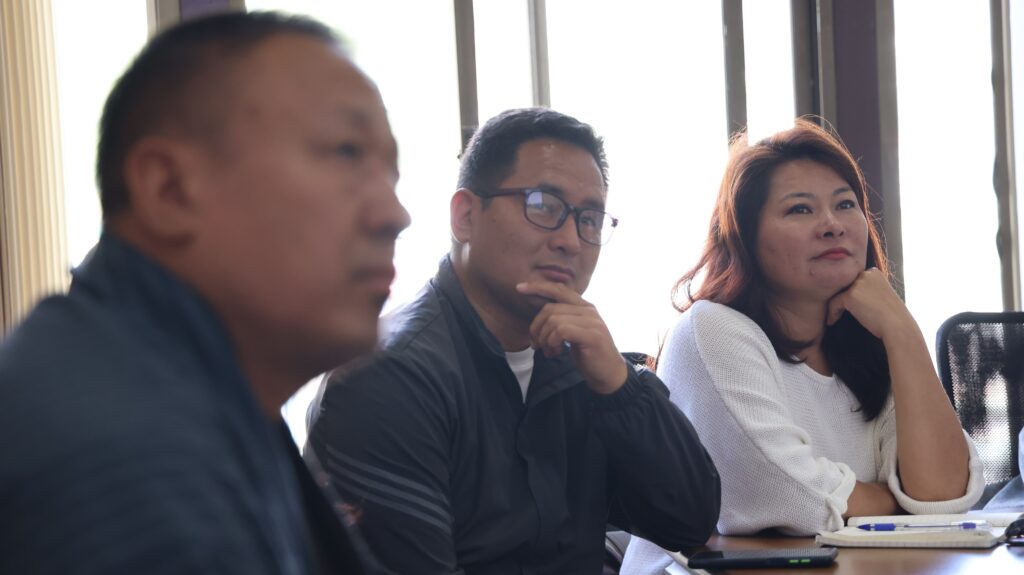
Mr. Kinley Dorji, Head of the Competition Department at the Bhutan Football Federation, brought a grounded and eye-opening perspective to the session. He peeled back the curtain on what it really takes to pull off a successful sports event—not just the excitement on the field, but the countless moving parts behind the scenes. From operations and logistics to managing on-the-spot challenges, he walked the teachers through the mechanics that keep an event running smoothly when things get hectic. But it wasn’t just about what needs to be done—it was about how to do it with efficiency, professionalism, and impact.
What made his session stand out was its honesty. He didn’t glamorize the work—instead, he made it real. His calm, clear delivery turned what often feels overwhelming into something doable. Teachers connected deeply with his practical insights: the importance of teamwork off the field, the value of preparation, and the small details that can make or break an event. Using examples from major tournaments he’s worked on, he showed how thoughtful planning and coordination—no matter how limited the resources—can transform even a modest school event into something memorable. By the end, teachers weren’t just inspired—they felt equipped. They walked away with the tools, confidence, and mindset to build events that are not only well-executed but also meaningful and lasting for their students and school communities.
This training represents an important step forward for the Sports in School (SiS) project and the schools involved. Equipped with new ideas, practical skills, and a renewed sense of purpose, these ten teachers are ready to nurture their sports programs into spaces of creativity, community connection, and sustainable growth.
The focus on entrepreneurship, thoughtful event planning, and teamwork promises a future where school sports are more than just competitions—they become opportunities for students to develop leadership, build confidence, and engage meaningfully with their communities.
Latest Updates and Insights
Discover our newest blogs, news, and announcements—curated just for you. Stay informed and inspired!
THE WORLDWIDE OLYMPIC PARTNERS


